
by Maureen | Aug 29, 2013 | Indonesia, Scoops of Joy, World Motherhood
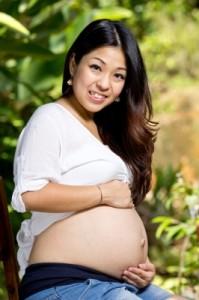 “What’s that one for?” I pointed to the rows of most beautiful shiniest rich dark sparkly brown bracelets at this meditation store.
“What’s that one for?” I pointed to the rows of most beautiful shiniest rich dark sparkly brown bracelets at this meditation store.
“They are for fertility.” the girl smiled warmly.
And I immediately withdraw my hand, a little too abruptly maybe followed by “Oh no! No, no, no!”
Diana, my best friend couldn’t control her laugh and I giggled as we thanked the friendly shop attendant and left the store.
“Yeah you definitely don’t want to go there, yet!” Diana and I laughed about it. “Obviously, we need the daddy first!” we casually cracked jokes.
Yet when I was alone in my thoughts, deep down I can’t help but wonder.
Why did I pull those?
Out of rows of many beautiful bracelets I was drawn into those specific ones. Fertility. Why?
Is it because I’ve been having some serious baby fever? Maybe from holding those cute babies at work last week, when my colleagues came to work with their babies. The sweet soft smell of them warms my heart. The feel of their soft plump little bodies against me. Their tight little grasp on my finger.
I just miss all that.
That day at the office before the big Eid holiday many of my colleagues, my self included came to work with our kids and yes, some brought their new babies.
It was chaotic in a good way. (more…)

by Ms. V. (South Korea) | Aug 27, 2013 | 2013, Human Rights, N. Korea, South Korea, Uncategorized, World Voice
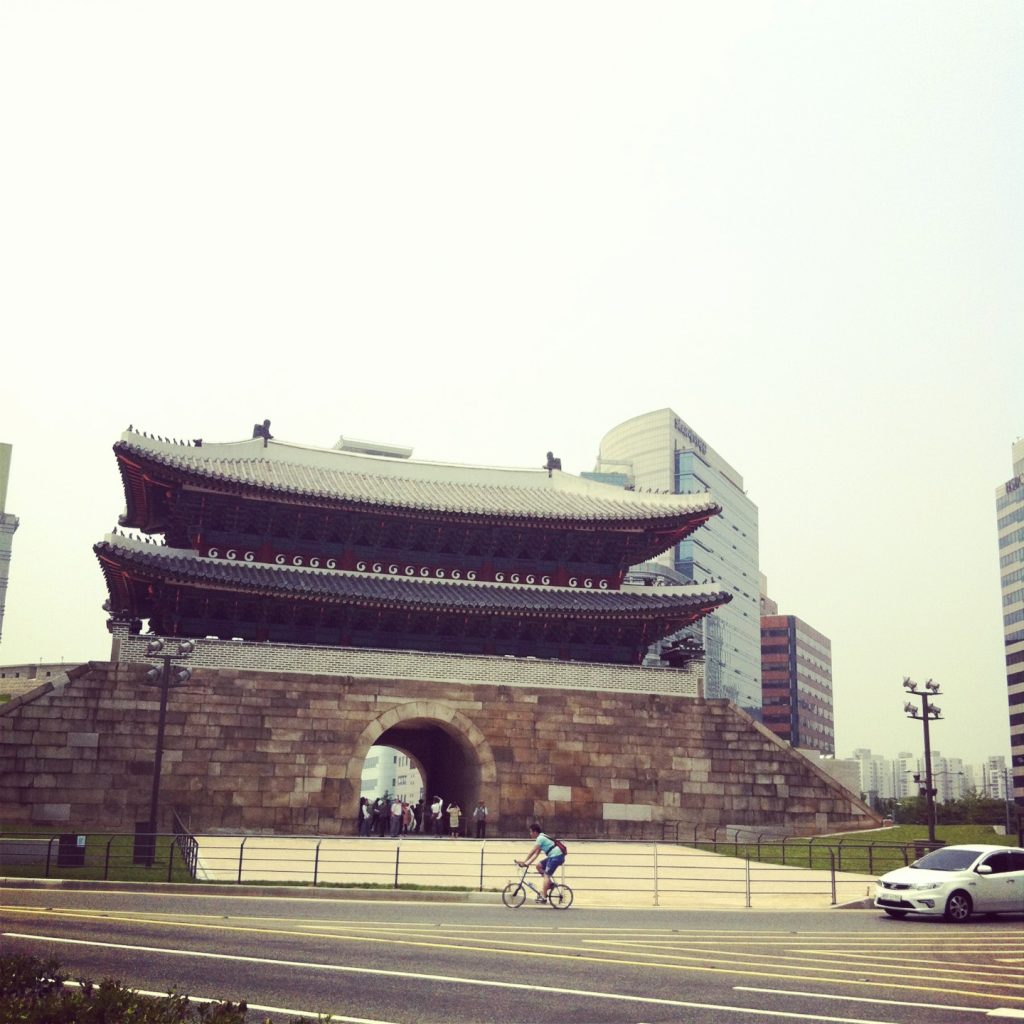
Photo by Ms. V
The third week of August here in Seoul brought some extreme heat, some sun after weeks of monsoon rain, and the first ever United Nations Commission of Inquiry into human rights abuses by North Korea.
The hearings were held at a local university and while the accounts were harrowing – beatings, killings, starvation – they were nothing we haven’t heard before. For some, the fact that the UN was officially holding these hearings was a hopeful sign that the international community is poised to act on behalf of the millions of North Koreans living under that repressive regime. For others, these hearings carry little, if any, weight at all. After all, what will more talking about abuses that have been going on for three generations of the Kim family rule do to stop them?
What I found most surprising about the hearings was the almost complete lack of interest in them here in Seoul. They were very sparsely attended, journalists being the bulk of those in attendance. As an outsider, it is very challenging to understand the complicated relationship that Koreans from the south have with Koreans from the north.
In the period immediately after the war, and for a few decades after, defectors were hailed as heroes and national treasures and were taken care of by the South Korean state. Somewhere along the road, though, attitudes began to shift. As more and more defectors made their way to South Korea, the government changed its policies for handling these North Koreans and South Korean citizens began to see them, not as heroes, but at best a nuisance and at worst a problem.
One must understand the vast differences that exist between these two countries occupying the same peninsula. North Korean defectors are shorter, less healthy, and far less educated, if at all.
Their language and speech patterns are different and they struggle to assimilate into the very fast-paced and highly technology-dependent life in the South. It is not uncommon for South Koreans to believe that North Koreans are lazy drunks and to feel embarrassed by their very existence.
The framework of Confucianism almost always provides some clarity to the cultural nuances that I don’t understand. In this case, the Confucian preoccupation with the “right way” creates an environment where differences, rather than being celebrated, are focused on and seen as inherently bad. There does not appear to be any room in the South Korean culture for an appreciation of the difference in language or mannerisms of the North Korean escapees.
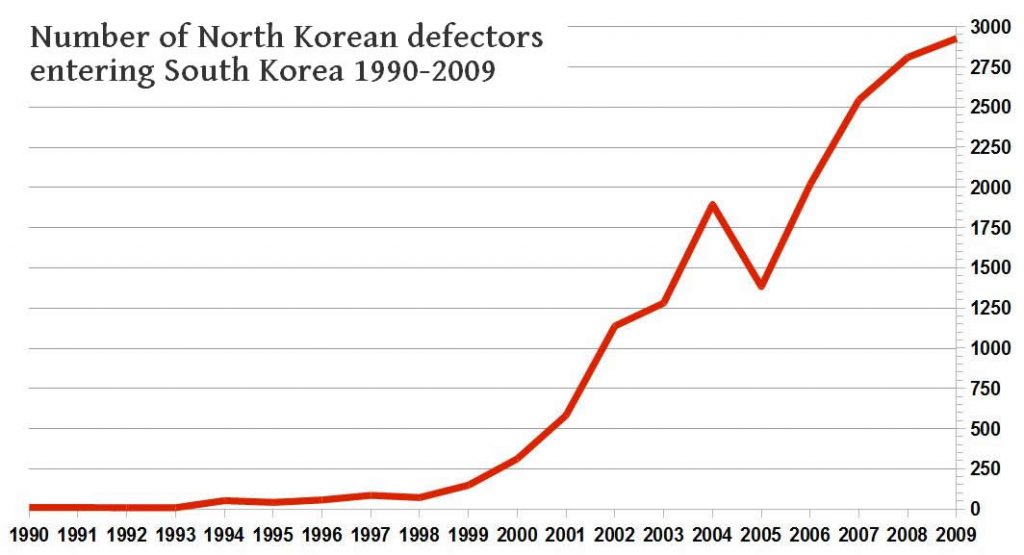
Source: Wikimedia Commons
This focus on uniformity and a belief that there is one right way to do everything is apparent throughout Korean culture, and while I have observed it many times and in various situations, its application to the situation with the North Korean defectors is hard for me to wrap my brain around.
As an outsider and a guest in this country – which I must say has been mostly warm and welcoming to me and my family and a very comfortable place for us to live – my perspective is admittedly limited. Bur from where I stand, I see the heartbreaking reality that those who are courageous enough to do what is necessary to flee North Korea and make it to the south have a largely uphill battle.
South Koreans cannot undo what has been done to those in the north. They cannot erase the trauma or the long-term effects of malnutrition and suppression. What they can do is put an end to the discrimination.
Differences are often threatening at first glance, especially when they are a result of something as terrible as war. Yet, all differences are opportunities for enrichment and growth. It is a shame that the current generation of Koreans is paying for the choices of previous generations and the problem of managing the current flow of defectors, not to mention what would happen were the two Koreas to unite, is beyond overwhelming.
This we know – the North Korean regime is guilty of human rights abuses. The North Koreans who make it to the south have suffered enough and defecting is only the beginning of their very hard road in life. Hopefully the South Korean government and people can create policies that help and cultivate attitudes that heal.
This is an original post to World Moms Blog written by our South Korean contributor Ms. V.
Did you follow the news of the hearings this past week?
For more information about the challenges faced by North Korean defectors, you may want to read this report compiled by CrisisGroup.org
Ms. V returned from a 3-year stint in Seoul, South Korea and is now living in the US in the beautiful Pacific Northwest with her partner, their two kids, three ferocious felines, and a dog named Avon Barksdale. She grew up all over the US, mostly along the east coast, but lived in New York City longer than anywhere else, so considers NYC “home.” Her love of travel has taken her all over the world and to all but four of the 50 states.
Ms. V is contemplative and sacred activist, exploring the intersection of yoga, new monasticism, feminism and social change. She is the co-director and co-founder of Samdhana-Karana Yoga: A Healing Arts Center, a non-profit yoga studio and the spiritual director for Hab Community. While not marveling at her beautiful children, she enjoys reading, cooking, and has dreams of one day sleeping again.
More Posts
Follow Me:

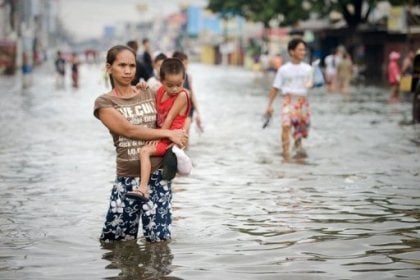
by Martine de Luna (Philippines) | Aug 22, 2013 | 2013, Philippines, Weather, World Events, World Motherhood
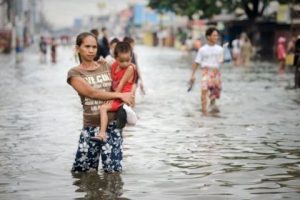 In the last five days, the Philippines has been under a slew of storms, heavy rains and flooding brought about by the tropical storm Trami. It has claimed lives, displaced thousands, and left much of the northern part of Luzon (the Philippines’ northern region) in drenched shambles.
In the last five days, the Philippines has been under a slew of storms, heavy rains and flooding brought about by the tropical storm Trami. It has claimed lives, displaced thousands, and left much of the northern part of Luzon (the Philippines’ northern region) in drenched shambles.
A tragedy? Yes. But quite normal in our country, unfortunately. We go through this every year, every monsoon season. Imbalanced infrastructure, compounded with the problems of informal settlers, i.e. squatters and poorly managed drainage systems: these are all “part and parcel” of what our nation has gotten used to when the rainy season strikes around this time of year. Add that to the current corruption scandals involving pork barrel abuses in our country, and you have quite a mess, served “Pinoy” style (or, as we like to say, halo-halo, i.e. “mix-mixed”.)
Poverty. Politics. Calamity. These are words flooding my social media news feeds lately. Some are angry at the state of the nation — and rightly so.
But, despite the negatives, the “Filipino spirit” holds up. I’d say it does so every year, especially in times like these when unmerciful monsoon rains strike our nation’s morale down to all-time lows. Inasmuch as there are angry tweets shaking virtual fists and fingers at corruption in the government, there are hashtags of hope tweeting updates about relief efforts, blasting out encouragement in the face of calamity. (more…)
Martine is a work-at-home Mom and passionate blogger. A former expat kid, she has a soft spot for international efforts, like WMB. While she's not blogging, she's busy making words awesome for her clients, who avail of her marketing writing, website writing, and blog consulting services. Martine now resides in busy, sunny Manila, the Philippines, with her husband, Ton, and toddler son, Vito Sebastian. You can find her blogging at DaintyMom.com.
More Posts

by Ana Gaby | Aug 15, 2013 | 2013, Family, Indonesia, Motherhood, World Motherhood
 Dear Ana Gaby,
Dear Ana Gaby,
Let me cut to the chase, you are in the verge of turning 30 years old, you live in South East Asia, you are married (yes, you who said that you wouldn’t even date until you were 30), you are a mother of two. Thirty, it is not as bad as it sounds, trust me. You might be wondering what ever happened to your ambitions of becoming a human rights lawyer and working at an international organization. As you may have noticed by now things did not turn out the way you expected. Your plans to travel the world, finish at least one Masters degree and not even consider getting married until you had moved into your own place did not get fulfilled.
Don’t worry. You get to study abroad, to live on your own and work in those places you always dreamed of working at. You don’t spend as much time working there as you had hoped for but you get a taste of the international organization realm and realize that you picked the right major. You meet people from all over the world and form friendships that last despite time and distance.
Along the way you meet a man who changes your life completely. Your priorities, perspective and your dreams shift from solo mode to “I wouldn’t do this without my partner in crime” mode and you find that it’s ok to let yourself literally fall in love. (more…)
Ana Gaby is a Mexican by birth and soul, American by heart and passport and Indonesian by Residence Permit. After living, studying and working overseas, she met the love of her life and endeavored in the adventure of a lifetime: country-hopping every three years for her husband’s job. When she's not chasing her two little boys around she volunteers at several associations doing charity work in Indonesia and documents their adventures and misadventures in South East Asia at Stumble Abroad.
More Posts
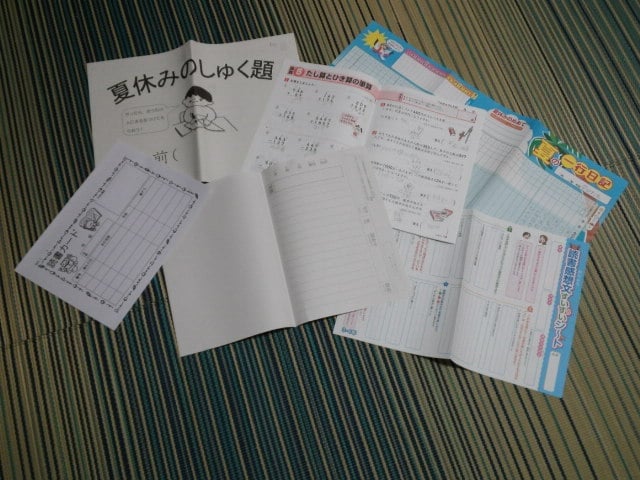
by Melanie Oda (Japan) | Aug 8, 2013 | Japan, Kids, World Moms Blog, World Motherhood
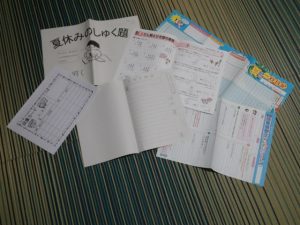 Summer vacation here in Japan is about six weeks long and falls between the first and second school terms for most kids. That means that it is not between school years, like the long, languid summer vacations I knew as a kid growing up in the US.
Summer vacation here in Japan is about six weeks long and falls between the first and second school terms for most kids. That means that it is not between school years, like the long, languid summer vacations I knew as a kid growing up in the US.
Before summer vacation starts, each class at my son’s school has a meeting, the gist of which is:
Thou shalt not forget what thou hast learned first term.
Now as any good educator knows, you can’t just leave it to the kids or, heaven forbid, their parents. We are all full-to-the-brim of good intentions, but, well, sometimes Life (and okay, I’ll admit, TV) has a habit of getting in the way. No, schoolchildren in Japan are laden down with homework that must be completed during summer “vacation.”
This is especially problematic for me, not being a native Japanese speaker nor possessing an arsenal of perfectly-tapered-when-appropriate-and-blunt-when-called-for kanji calligraphy skills. My son and I struggle through his homework every year. My husband does it with him on weekends (sometimes) when he is here, but to get through the various booklets and worksheets and projects and -eek!- a book report, we have to plug through at least two pages a day. There are no days off at weekends or time off for good behavior. (more…)
If you ask Melanie Oda where she is from, she will answer "Georgia." (Unless you ask her in Japanese. Then she will say "America.") It sounds nice, and it's a one-word answer, which is what most people expect. The truth is more complex. She moved around several small towns in the south growing up. Such is life when your father is a Southern Baptist preacher of the hellfire and brimstone variety.
She came to Japan in 2000 as an assistant language teacher, and has never managed to leave. She currently resides in Yokohama, on the outskirts of Tokyo (but please don't tell anyone she described it that way! Citizens of Yokohama have a lot of pride). No one is more surprised to find her here, married to a Japanese man and with two bilingual children (aged four and seven), than herself. And possibly her mother.
You can read more about her misadventures in Asia on her blog, HamakkoMommy.
More Posts

by Kristyn Zalota | Aug 6, 2013 | 2013, Birthing, Clean Birth Kits, Laos, World Moms Blog, World Voice
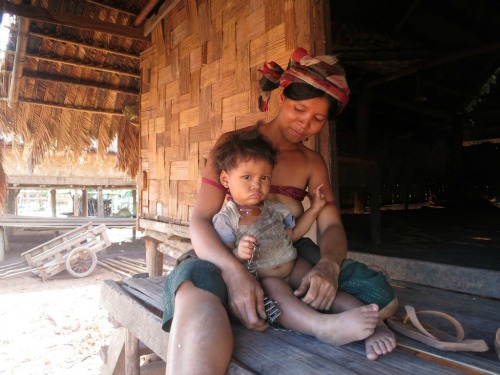
As many of you know, one year ago I started CleanBirth.org, a non-profit aimed at reducing infant and maternal mortality in Laos. We provide nurses with training, birthing supplies and funding to educate village volunteers about safe birthing practices.
One tenet of my organization is that local people call the shots on-the-ground, while Westerners provide the resources and funds. Local nurses are empowered to develop and execute programs which empower expecting mothers to have safer births.
There’s that darling of non-profit speak: empower. Oxford defines it: to “… make (someone) stronger and more confident, especially in controlling their life and claiming their rights.” A worthy goal, certainly, but sometimes I worry:
“Can foreigners really empower locals to find long-term solutions to their own problems?”
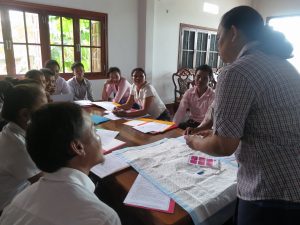
Photo By Kristyn Zalota
I thought about this on my long journey to Laos in June to train twelve nurses. On this second CleanBirth Training trip, I wanted to see that the nurses were taking ownership of our CleanBirth Kits Program. I also wanted to hear their new ideas about ways that we can make birth safer.
From the beginning, it was clear they the nurses wanted to learn and participate. They were “…thrilled to have been invited…none of them had ever been asked to a training like this before.” They asked pertinent questions about the CleanBirth Kits Program and grasped the importance of accurately reporting data.
As we moved on to additional ideas for making birth safer, they became even more engaged. Dr. Nong, my Lao partner, had to write furiously to keep up with the nurses’ suggestions. I sat back and smiled, thinking:
“This is exactly the way it should be. I, the Westerner, am in the background, while they, the locals, are finding their own answers.”
In the end Dr. Nong and the nurses drafted an outline for our new initiative: CleanBirth Volunteer Training. The nurses will gather one woman from each of the villages that she serves to learn about Clean Birth Kits, safe birth practices, and prenatal and infant care. The first CleanBirth Volunteer Training will be held in October.
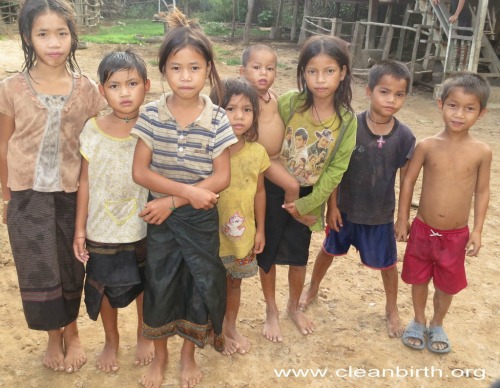
So have we empowered these nurses? Are we giving women more control over their lives and births in the 100 remote communities that we serve? I’d say that we are off to a good start. The nurses have the funds and the tools that they need. They have designed the solution themselves. Now, we must wait and see what happens next.
This is an original World Moms Blog post by Kristyn Zalota.
What do you think? Is it truly possible as an outsider to empower locals of another culture in a sustainable way?
Kristyn brings her years of experience as an entrepreneur and serial volunteer to CleanBirth.org. She holds a MA, has run small businesses in Russia and the US, and has volunteered in Nicaragua, Costa Rica, Thailand, Cambodia, Laos and Uganda on projects related to women’s empowerment.
After having children, Kristyn became an advocate for mothers in the US, as a doula and Lamaze educator, and abroad, as the Founder of CleanBirth.org. She is honored to provide nurses in Laos with the supplies, funding and training they need to lower maternal and infant mortality rates in their villages.
More Posts

 “What’s that one for?” I pointed to the rows of most beautiful shiniest rich dark sparkly brown bracelets at this meditation store.
“What’s that one for?” I pointed to the rows of most beautiful shiniest rich dark sparkly brown bracelets at this meditation store.







 In the last five days, the Philippines has been under a slew of storms, heavy rains and flooding brought about by the
In the last five days, the Philippines has been under a slew of storms, heavy rains and flooding brought about by the 
 Dear Ana Gaby,
Dear Ana Gaby,
 Summer vacation here in Japan is about six weeks long and falls between the first and second school terms for most kids. That means that it is not between school years, like the long, languid summer vacations I knew as a kid growing up in the US.
Summer vacation here in Japan is about six weeks long and falls between the first and second school terms for most kids. That means that it is not between school years, like the long, languid summer vacations I knew as a kid growing up in the US.






